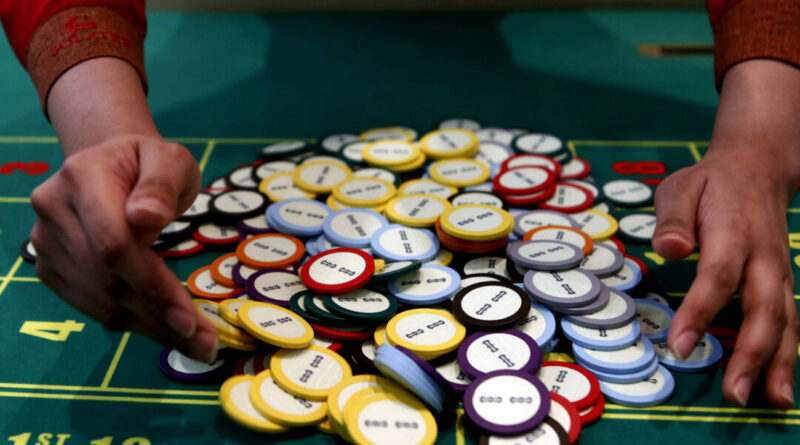Chinese-Owned Online Gambling Businesses Banned in the Philippines
Mr. Marcos emphasized, “The grave abuse and disrespect to our system of laws must stop.”
Filipino President Ferdinand Marcos has declared an immediate ban on primarily Chinese-operated online gambling businesses, alleging their involvement in criminal activities in the country.
The crackdown led to the closure of several large complexes where authorities believed thousands of workers from Southeast Asia and Chinese nationals were working illegally and under harsh conditions.
“Operating under the guise of legitimate entities, their activities have expanded into illegal ventures beyond gaming such as financial fraud, money laundering, prostitution, human trafficking, abduction, severe torture, and even murder,” Mr. Marcos remarked.
These Chinese-operated gambling establishments, also known as Philippine offshore gaming operators (POGOs), are situated in the Philippines but cater to overseas clients.
Mr. Marcos asserted that the complete prohibition of these gaming sites will address various issues confronting the Philippines.
He instructed the country’s gaming authority to phase out and cease POGO operations by the end of the year, receiving enthusiastic applause and a standing ovation in the Philippine Congress. He also tasked labor and economic officials to identify alternative employment options for Filipino workers affected by the shutdown.
‘Cannot Yield, nor Waver’ South China Sea Position
During his address, Mr. Marcos affirmed that his country “cannot yield, nor waver,” in its South China Sea position and reiterated that it will explore avenues to ease tensions without compromising its stance and principles in the contested region.
He also emphasized that the Philippines aimed to resolve these disputes through diplomatic channels.
“Proper diplomatic channels and mechanisms under the rules-based international order remain the only acceptable means of settling disputes,” he reiterated.
Since 2023, the Philippines has encountered numerous volatile incidents and harassment from Beijing within its exclusive economic zone at its outpost in the Second Thomas Shoal, part of the disputed Spratly Islands. The Chinese coast guard frequently intervenes aggressively to block the Philippines from replenishing its troops at the outpost, employing water cannons and ramming Philippine vessels. In a recent clash on June 17, several Filipino sailors were injured, with one losing a finger.
Mr. Marcos mentioned in his address that the Philippines is “continuing to strengthen [its] defensive posture, both through developing self-reliance and through partnerships with like-minded states.”
The Philippines is intensifying efforts to forge security alliances to bolster its military’s limited capacity to safeguard Manila’s territorial interests in the South China Sea.





